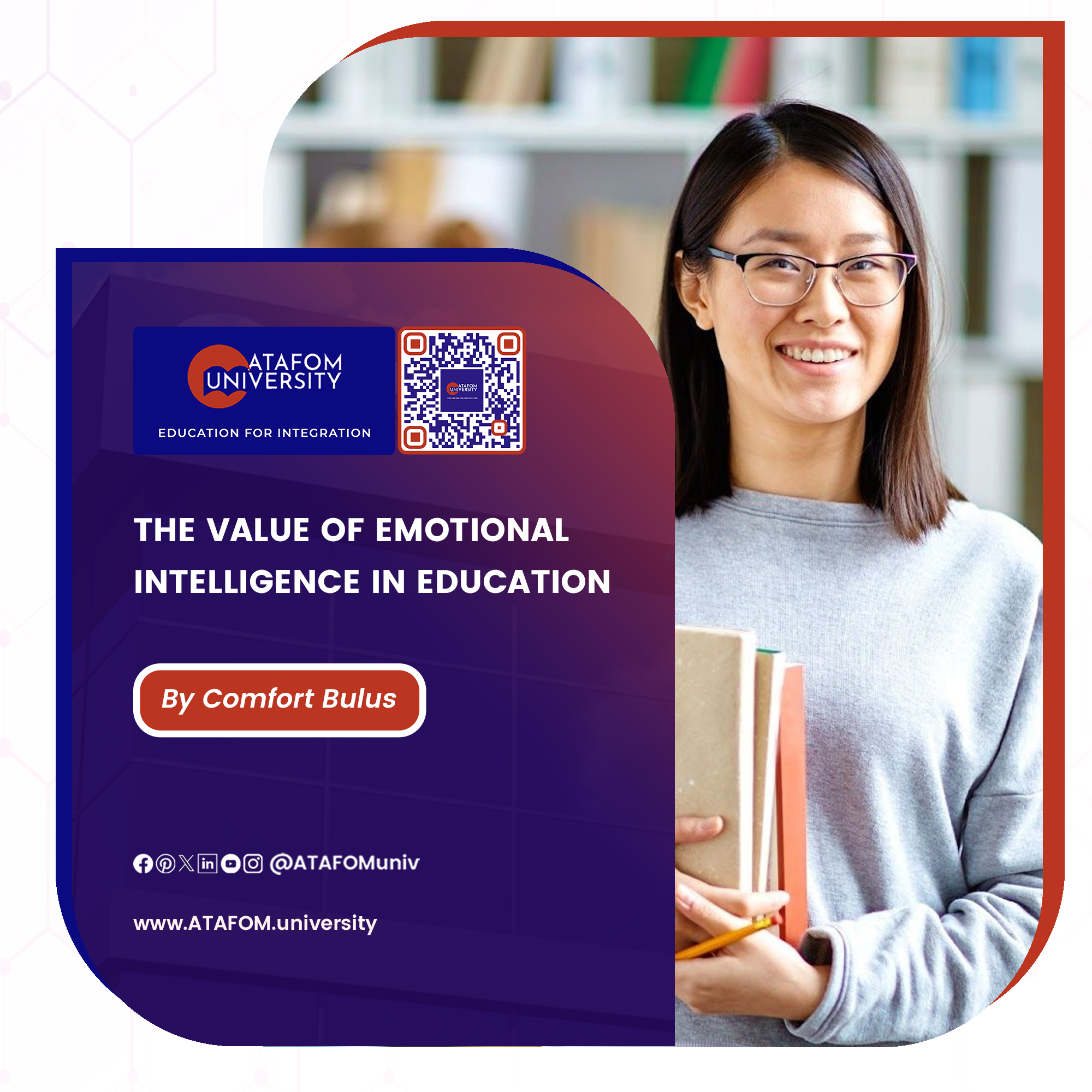In today’s educational settings, emotional intelligence is linked to academic success. Students with greater emotional intelligence manage learning hurdles more efficiently and are more satisfied with their schooling. They are adaptable, collaborative, and resilient. Emotional discernment also leads to great leaders, teamwork, and a dedication to creating positive educational environments. Developing pupils’ emotional intelligence can lead to academic success and a more fulfilling learning experience. Emotional literacy is important in determining the future of education, benefiting both students and educators.
Emotional intelligence (EQ) is the ability to recognise, comprehend, and control our own and others’ emotions. It entails social and technical abilities that aid in efficient communication, sympathetic interactions, and successful interpersonal relationships. Emotional literacy is a fluid skill that may be developed with practice and self-awareness. Individuals with a high EQ have better mental health and reduced stress levels. Leaders with high EQ generate more favourable work environments, which is critical for leadership success. Conflict resolution and team collaboration are two examples of EI in action.
Importance of Emotional Intelligence
Emotional intelligence (EI) is an important part of education because it affects students’ academic success, personal growth, and general well-being. It encourages self-awareness, allowing children to deal with stress, overcome obstacles, and keep a happy attitude. EI improves interpersonal relationships, resulting in a more favourable learning environment. Students with high EI can empathise with their peers, communicate successfully, and negotiate social complexity. They also show initiative in collaborative endeavours. Emotional intelligence prepares children for real-world circumstances by helping them acquire skills such as conflict resolution, flexibility, and resilience. Integrating EI into education leads not only to academic success but also to lifelong success and fulfilment.
Components of Emotional Intelligence
Emotional intelligence (EI) is a skill that consists of four essential components: self-awareness, self-management, social awareness, and relationship management. Self-awareness enables people to understand their emotions, strengths, and shortcomings, allowing them to make educated decisions and effectively handle stress. Self-management entails controlling emotions, being cool in stressful situations, adapting to change, and avoiding impulsive reactions. Understanding others’ feelings, empathising with their points of view, and efficiently navigating social dynamics are all part of social awareness. Relationship management, the apex of EI, entails employing emotional awareness to create and sustain meaningful connections, as well as successful communication, conflict resolution, and inspiring influence. These abilities help teams and collaborative activities succeed.
Advantages of Emotional Intelligence
Emotional Intelligence (EI) is a very effective strategy for improving interpersonal relationships, communication, conflict resolution, stress management, and leadership. It enables people to comprehend and empathise with others, resulting in more harmonious relationships. EI also helps with good communication by helping people to express themselves clearly and empathically, reducing misconceptions. EI is also important in conflict resolution, allowing people to manage differences with tact and diplomacy. EI also provides individuals with coping tools to help them manage difficult conditions, such as the digital transformation of higher education. Furthermore, executives with high EI frequently demonstrate excellent leadership skills, inspiring and motivating their colleagues and changing their style to diverse scenarios.
Signs of Personal Emotional Intelligence
Understanding emotional literacy is critical for personal development as well as interpersonal performance. Maintaining calm and focus in difficult conversations, adapting to changes in project goals without becoming frustrated, providing empathy to friends, articulating thoughts clearly, mediating disagreements, handling tight deadlines, cultivating positive relationships within a community, and seeking constructive feedback for improvement are all key indicators of high emotional intelligence. Self-awareness, resilience, empathy, effective communication, conflict resolution, adaptation, social awareness, and a dedication to personal growth and development are all demonstrated by these talents.
How to Improve Your Emotional Intelligence
Emotional intelligence (EI) can be developed by everyday routines such as daily blogging, emotion tracking, and receiving feedback from trusted others. Daily writing aids in the identification of triggers and patterns, which aids in the development of self-awareness. Emotion monitoring aids in categorising and charting feelings, and soliciting input from friends or co-workers can provide useful insights. Maintaining a positive attitude entails using affirmations, fighting negative thoughts, and cultivating thankfulness. These methods assist in shifting attitudes and encouraging a naturally cheerful internal dialogue. Individuals can increase their EI and overall well-being by including affirmations, challenging negative ideas, and cultivating appreciation. These additional steps will boost your emotional intelligence:
- Set clear, measurable, realistic, meaningful, and time-bound goals to improve emotional connection.
- Reflect on your goals frequently: Establish a system for regular evaluations to assess alignment with your objectives.
- Assess the underlying values driving your goals: To improve emotional connection, understand the basic motivations driving your ambitions.
- Manage negative emotions: Include deep breathing exercises to encourage relaxation and stress reduction.
- Make holistic well-being a priority: Make activities that contribute to your entire well-being a priority, such as exercise, sleep, and a nutritious diet.
- Develop empathy: Pay attention to the speaker, avoid distractions, and communicate comprehension through reflective responses.
- Use open-ended questions to encourage other points of view and avoid making assumptions.
In conclusion, to improve relationships and emotional resilience, incorporate practical tactics such as focused attention, reflective reactions, and open-minded inquiry into daily encounters. The use of instructional podcasts to help students grow and enrolment at ATAFOM University International for a well-rounded academic experience is a great way to achieve success. These measures, as well as enrolment at ATAFOM University, can assist in properly managing academic workload and achieving the requisite Emotional Intelligence.


